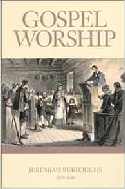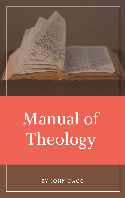Ads
Drugs and Theology. How does one affect the other? Why would they be anyway related? They are in some people and groups. Actually, the connection is between the source of one’s beliefs, and how chemicals affect that set of your belief base.
Contents
What the Bible indicates as to God communicating with Holy Men
We do not see anything that would indicate that the Holy men of God were under drug influence or alcohol influence at any time of their lives, much less during the revelation of God’s Word and concepts to them.
We see that rulers (Prov 31:4) and the men of God (Judges 13:7; Lev 10:9; Luke 7:33) were forbidden to drink wine. This would set the tone that certain key people should never indulge in alcohol nor drugs.
Oseas 4:11 Fornicación, vino y mosto quitan el juicio.
Chemicals affect the mind so that they do not make good decisions. There is nothing in science that refutes this, on the contrary, the laws of all countries support this with fines for driving, operating machinery under the influence.
God adds that his holy men who represent him should not drink either.
In a scenario where Satan tries to convince men to his thinking, and God to His thinking, things can be more or less the same. God is right and wins, but Satan lies and tries to “be right” by deceptions and lies, but if Satan can, he introduces chemicals that impair sound reasoning to win. Drugs and Theology
What the Bible indicates as to false prophets
But when it comes to the false prophet in God’s biblical comments, we understand that witchcraft and sorcery were very commonly associated with false doctrine, false prophets, and the curse of God on them entirely.
First, carnal ungodly people like to live in the pleasures of the world, so leaders (civil or religious) that allow or push alcohol and drugs are going to be very popular among the common people
Second, there is a link between alcohol and drugs and the contact of a human with a demon. Humans need to be “in another state of mind” to more easily contact demons and “evil spirits”
An example here is in Gnosticism, with their worship of the God of Bacco, Wine. The idea is that through entertainment, singing, dancing, food, nakedness, and “spirits”, they could more easily contact these spirits to receive messages from them.
While the Bible prohibits this kind of thing, these Gnostics (other groups also took the Gnostic view of drugs) mandated drugs and alcohol in their religious teaching. Only “under the influence” of drugs can these people connect properly (in their view) with the other world spirit.
Alcohol is a drug to cause the victim to obey others
When we examine alcohol in the Bible, it is exactly in the Bible as it is today. We can see a very common scene where people introduce alcohol to a person, they drink, they make bad decisions, and the first bad decision is to drink until drunkenness.
In a state of intoxication, the common person is open to obeying whatever those around him or her want. Men take women they want to have sex with and they would refuse normally to a place where they fill them with alcohol, drugs, sensual dancing, etc. and these women become open and obedient to the sexual desires of the bad men. The common thread is intoxication by alcohol or alcohol and drugs.
If it is hard to understand the Bible and come to conclusions, good conclusions on good doctrine in a normal state of mind, how much more difficult is it to come to the truth in an altered state of mind? Who is benefitted from this? Satan. Drugs and Theology
On Drugs and Theology, See also
More on Satanism
- The Reality of Demons
- The Pentecostal Fascination with Demons
- Drugs and Theology
- David Cox Anthology on the Antichrist

Burroughs Gospel Worship 14 chapters (263 pages) which are each a sermon on how to properly worship God. (format PDF)
“Jeremiah Burroughs’ Gospel Worship has greatly influenced my understanding of biblical worship. It is one of the most important books I have ever read.”
–R.C. Sproul
Download: Burroughs Gospel Worship.







